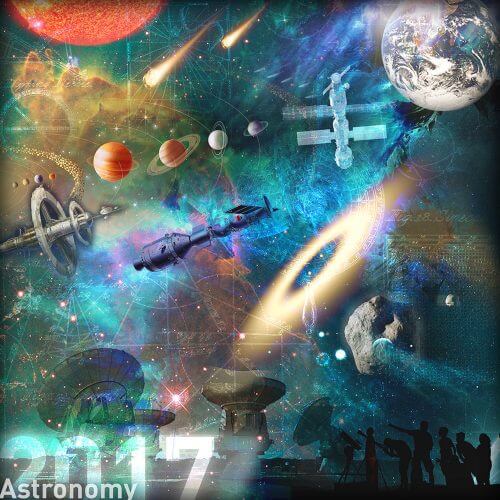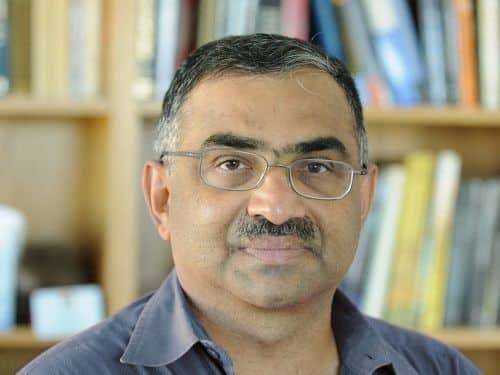The Dan David Prize in the Future Dimension will be awarded this year to researchers whose ongoing research has led to a breakthrough in the field of observational and theoretical astronomy.

Note: Prof. Neil Gerles passed away on February 5th, the day before the announcement. Tel Aviv University President Prof. Yosef Klefter called his wife shortly before Gerles' death and asked her to inform him of the win. She carried out the request, but he was already at a terminal stage.
The time dimension of the future - astronomy. Astronomy in the 21st century shows impressive growth and holds promise for understanding problems such as the origin of the universe, the structure and dynamics of galaxies, the birth, life and death of stars and solar systems, and the demography and dynamics of solar systems.

Whether trying to solve the mystery of dark matter and dark energy, studying the physics of black holes, neutron stars and stellar explosions or using electromagnetic radiation, neutrinos, cosmic rays and gravitational waves to perceive, map and complete the picture of the world around us, astronomers have developed ingenious techniques for observing, calculating and analysis in their efforts to uncover the secrets of the universe.
The Dan David Prize in the Future Dimension will be awarded to researchers whose ongoing research has resulted in a breakthrough in the field of observational and theoretical astronomy.
Prof. Neil Grells (Prof. Neil Gehrels), American astrophysicist, and director of the Center for Astrophysics at NASA's Goddard Center receives the Dan David Award for his discoveries using NASA's Swift Space Telescope, a mission in which he is the principal investigator, and which changed the view of the changing sky in gamma rays and -X (x-ray). Under his leadership, Swift discovered more than 1000 of the massive explosions called gamma-ray bursts, revealing a wealth of information about their properties, distances and environments. His discoveries led to new and important insights into the nature of these extreme events. As mentioned, Prof. Gerles passed away shortly after the announcement of his winning the Dan David Prize.

Prof. Shrinivas Kulkarni (Prof. Shrinivas Kulkarni), an Indian-American astronomer, from the Department of Astrophysics at the California Institute of Technology (Caltech) receives the Dan David Award for being a key figure in astronomical observations in the time domain and across the entire electromagnetic radiation spectrum. He initiated and directed the PTF project, a large celestial survey in search of transient and variable astronomical sources.
His research enriched human knowledge about the changing sky, including the discovery and characterization of thousands of stellar explosions - supernovae and the like. Many of the events that were discovered were observed in detail and understood more than ever before, with some of them contributing to the definition of completely new types of explosions that had not been observed before.
Prof. Andrei Odelsky (Prof. Andrzej Udalski), a Polish astronomer and astrophysicist, currently the director of the Warsaw University Observatory, is awarded the Dan David Prize for being a pioneer and leader in time domain astronomy, and in the study of the changing sky in the Milky Way galaxy and the neighboring Magellanic galaxies.

Through the OGLE astronomical variability survey, which he carried out over 25 years, he monitored the brightness of over half a billion stars, discovered and characterized over half a million variable stars of all types, thus expanding and deepening knowledge in the field by orders of magnitude. Using the gravitational microlensing method, which is one of its pioneers. He discovered many dozens of planets in the "snow line" regions of their parent stars, a population of planets essential to understanding the formation and development of planetary systems such as the solar system.
For the 16th year, the Dan David Prize, awarded annually, will distribute three prizes worth one million dollars each to 7 winners in the three dimensions of time - past, present and future. The fields in which the awards are given this year are: in the dimension of the past - archeology and natural sciences, in the dimension of the present - literature and in the dimension of the future - astronomy.
According to the prize tradition, the winners donate 10% of the prize money to Asersea Scholarships intended for young researchers at the doctoral and post-doctoral stages in Israel and abroad.

4 תגובות
Yossi, thank you. I updated - see the note I added at the beginning of the article.
And I actually did a lot of FACT CHECKING on the article. I also entered his website at the university and did not notice any message at that moment.
Ruthie the award was given to them in the future dimension as defined by the Dan David Award. One of them happens to be about the time dimension, maybe that's what confused you.
Disgusting and ironic that the prize given to physicists is given for the three dimensions of time when there is only one.
Maybe the translation is wrong?
And it's just a shame that Prof. Neil Gehrels won't be able to enjoy the award. He died yesterday (6/2/2017) at the age of 64.
https://en.wikipedia.org/wiki/Neil_Gehrels